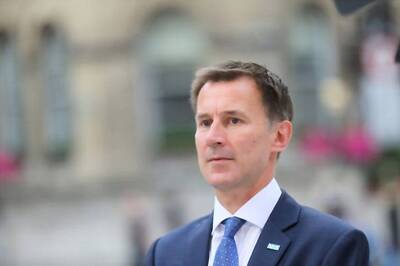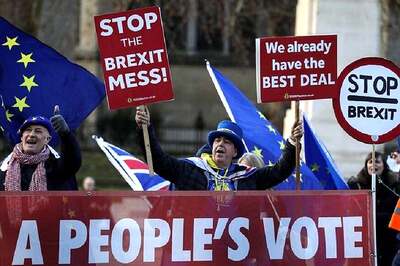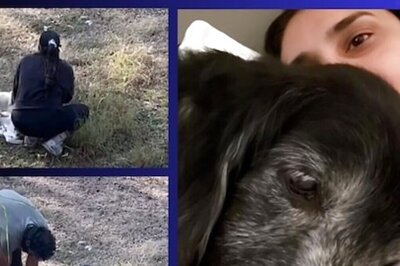Boris Johnson Demands Election as UK Parliament Scenes Get Chaotic Amid Extraordinary Verbal Clashes

views
London: British Prime Minister Boris Johnson challenged Opposition parties to table a no-confidence motion in his government to trigger a general election, amid chaotic scenes in the House of Commons after a historic Supreme Court verdict over-ruling his earlier suspension of Parliament.
Johnson, who had to dash back from the United Nations summit in New York to face furious parliamentarians on Wednesday evening, appeared unrepentant as he stuck to his stand that the senior judges had been wrong and rejected the pleas of members of parliament to moderate his inflammatory language as an attempt to frustrate his Brexit strategy to meet the October 31 deadline.
Instead of facing the voters the Opposition turned tail and fled from an election. Instead of deciding to let the voters decide, they ran for the courts it is absolutely no disrespect to the judiciary to say I think the court was wrong, he declared, amid extraordinary verbal clashes in the Commons.
Other parliamentarians also rounded on Johnson for his lack of contrition following the unanimous and historic defeat for the government in the highest court of the country, when it ruled on Tuesday that the UK PM had been unlawful in seeking Parliament to be prorogued earlier this month.
Responding to Johnson, Labour Party leader Jeremy Corbyn accused him of failing to take the court defeat seriously, branding his statement "10 minutes of bluster from a dangerous Prime Minister who thinks he is above the law but in truth is not fit for the office he holds.
He said that Johnson should have done the honourable thing and resigned.
Johnson was eventually seen dramatically walking out of the Commons at the end of a three-hour grilling by parliamentarians despite the Speaker, John Bercow, asking him to sit down.
After a brief standoff between Johnson and Bercow, he was seen leaving amid what political experts have described as one of the most bitter clashes in the history of the British Parliament.
Bercow said to the UK PM: "I think it would be a courtesy to stay for the point of order if the point of order relates to the matter with which we've just been dealing. Go and sit down.
Johnson's decision to ignore the Speaker and leave the chamber was condemned on social media, as the focus now remains on his next move over Britain's exit from the European Union (EU).
He says he wants an election. I want an election. If he wants an election, it's very simple. Get an extension and we'll have an election, Corbyn declared, in reference to the Opposition stand that any snap election vote can take place in Parliament only once the prospect of a no-deal Brexit is completely taken off the table, by seeking an extension to the October 31 deadline in order to thrash out a withdrawal agreement with the EU.
Johnson has rejected this stand, saying "all that matters to them is an obsessive desire to overturn the referendum result", as he urged smaller parties in the House to table a vote of no confidence in his government to trigger a general election.
Under the UK's Fixed-term Parliaments Act, the Prime Minister cannot call an election unless two-thirds of parliamentarians back it, meaning the main opposition party has to back it. But a motion of no confidence in the government only needs a majority of one and could lead to a general election being held. It is unprecedented for the government to voluntarily offer time to the Opposition and smaller parties to debate such a motion.
Downing Street said it would assume parliamentarians had confidence in the government and its Brexit strategy if Opposition parties did not table a confidence vote.
"It's put up or shut up time," a Downing Street spokesperson said.




















Comments
0 comment